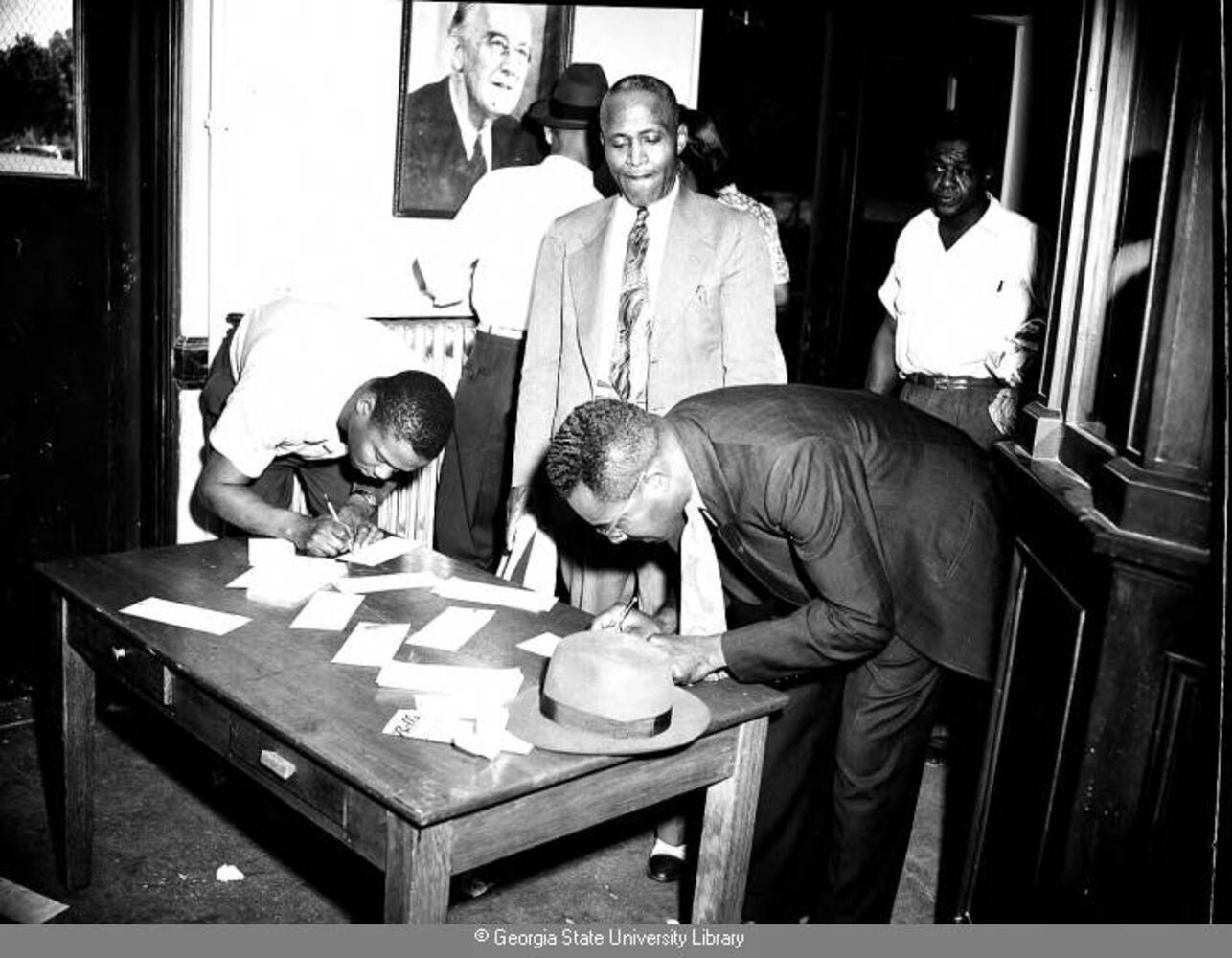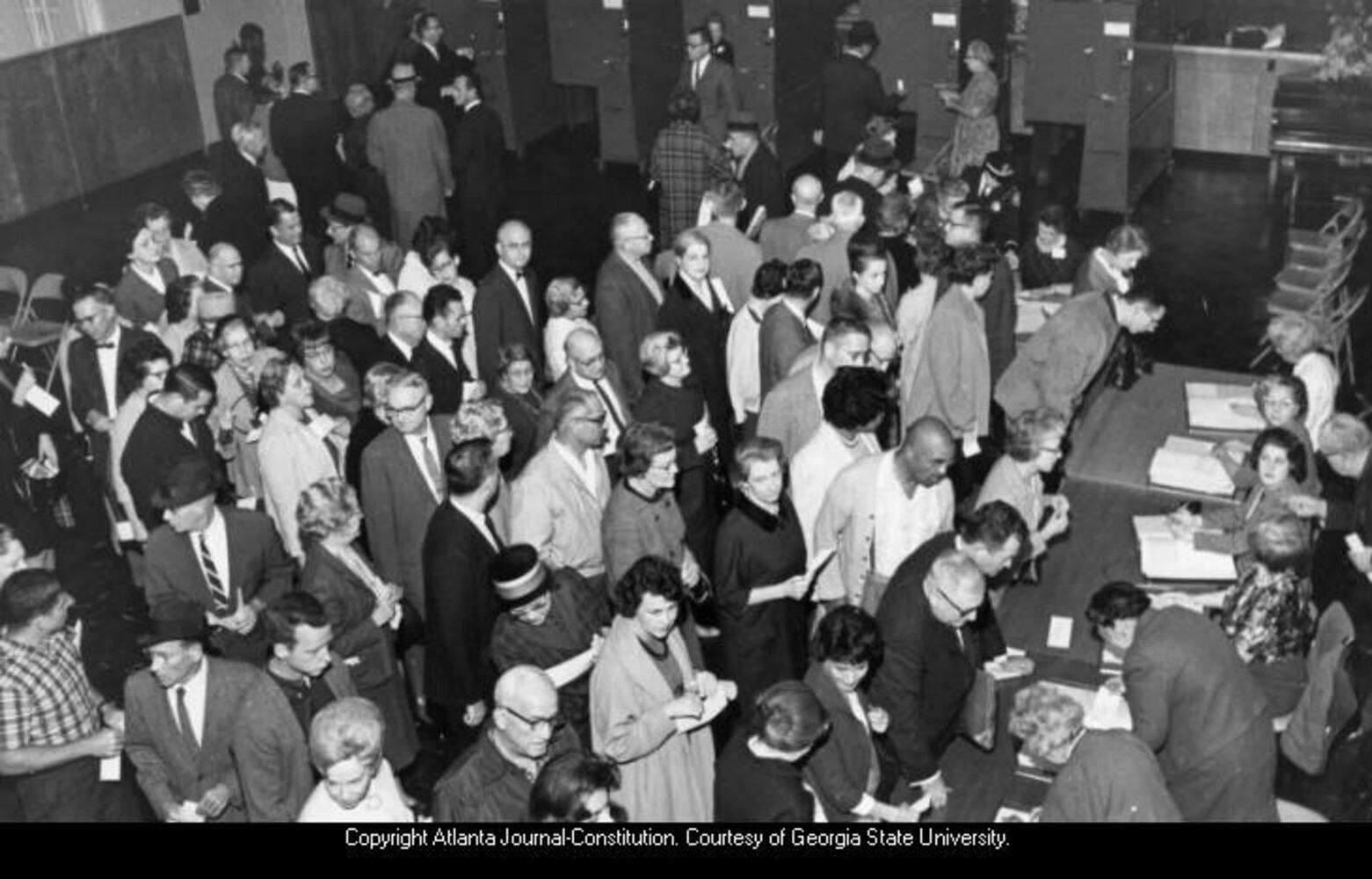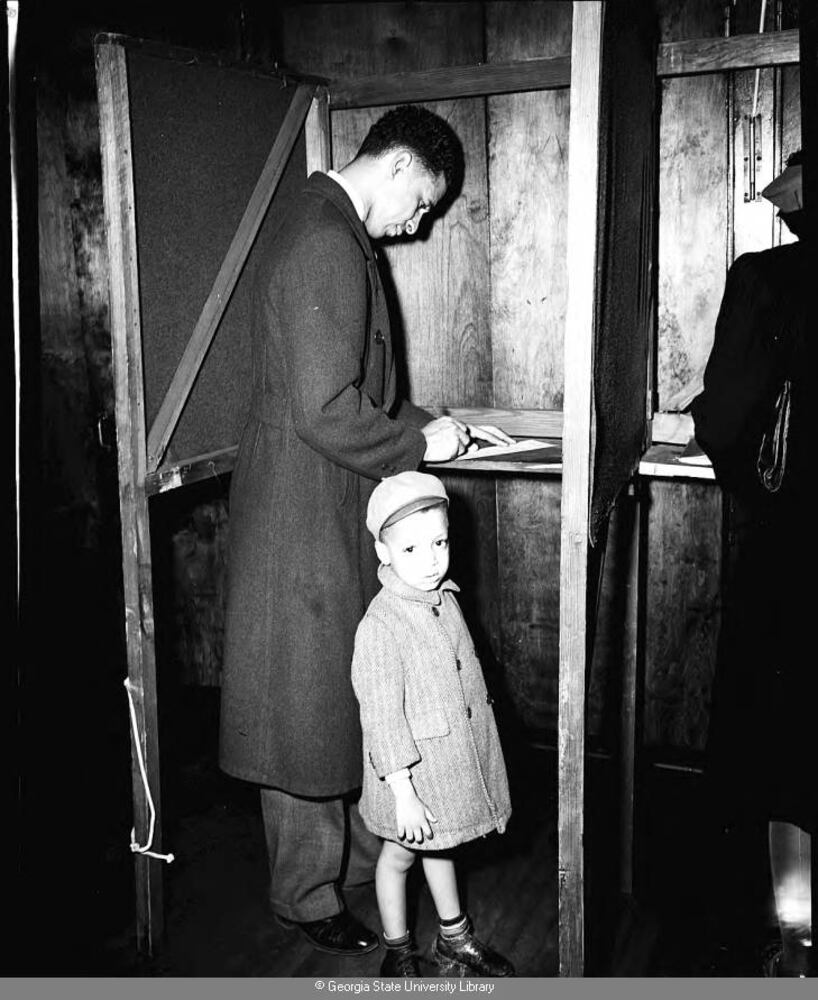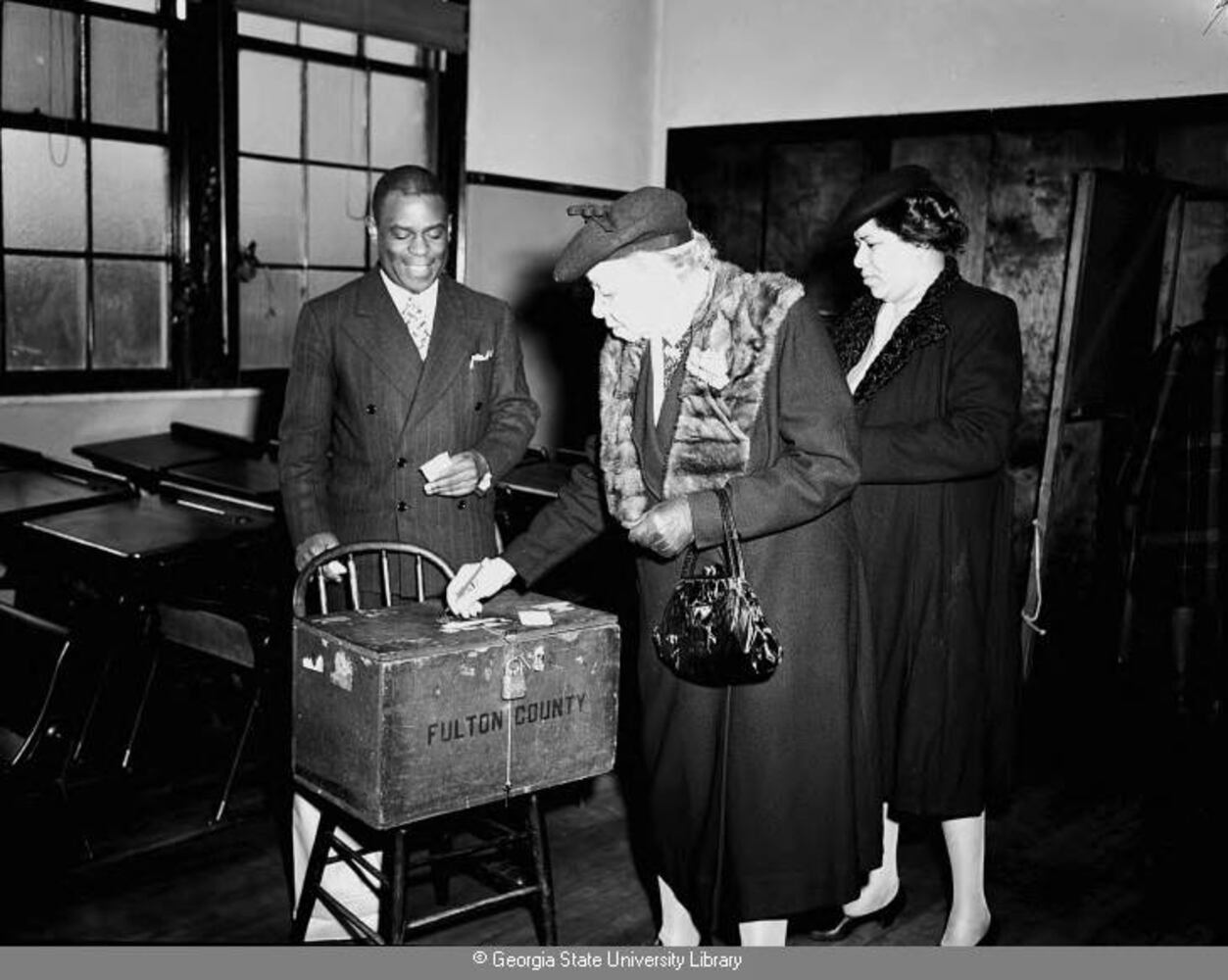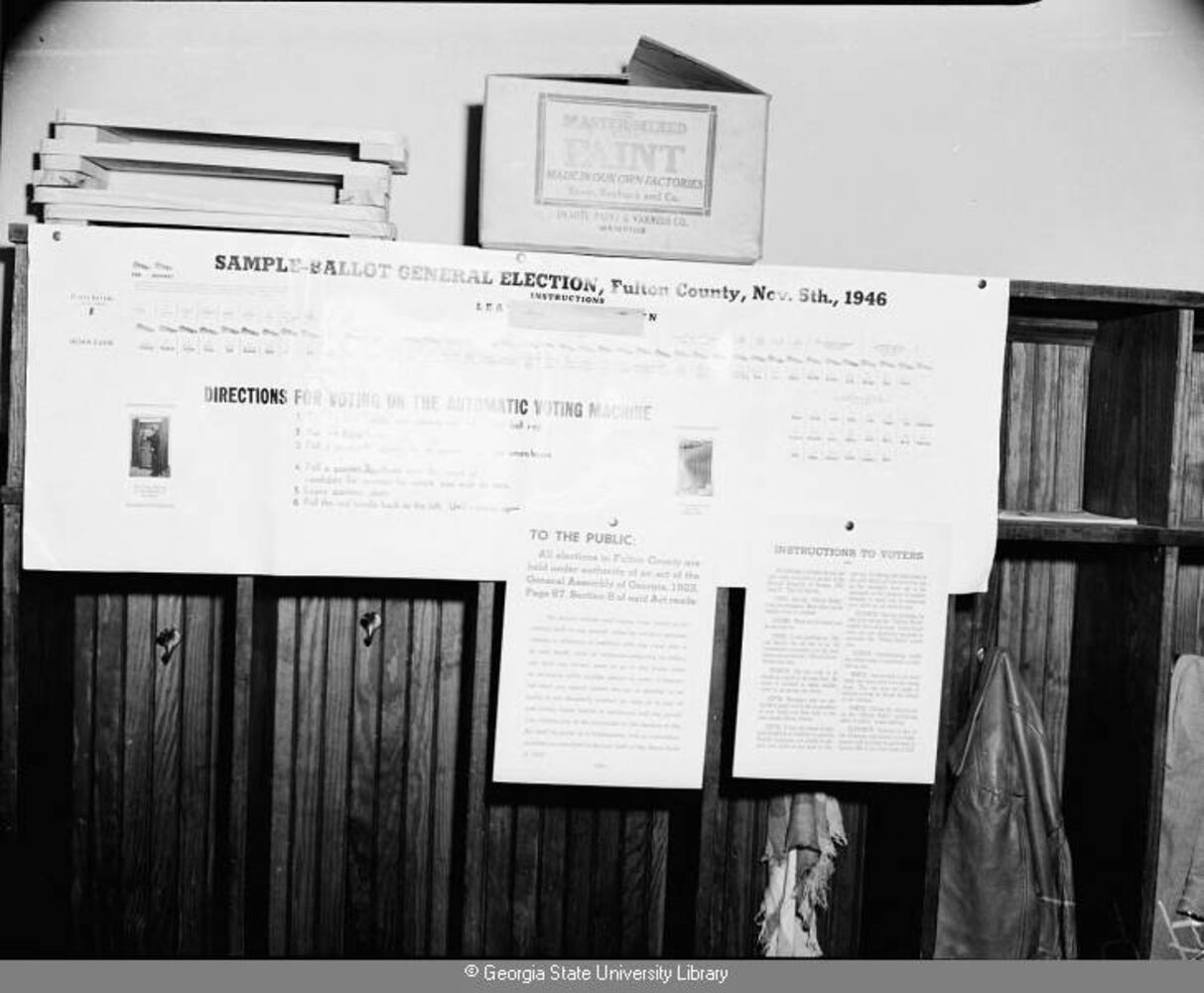All eyes are on Georgia voters today, when the results of two U.S. Senate runoffs will determine if Democrats gain control of Congress. This year, Georgia is using a new system at the polls combining touchscreen and paper voting. And President Trump and others have criticized the state’s handling of election procedures, filing several lawsuits seeking to overturn Georgia’s results. But controversy over the validity of elections here is nothing new.
The first time Atlantans put a new voting process through its paces was in 1964, when Fulton and DeKalb counties became the first in the nation to use computers as a means of tallying votes.
Credit: AJC Print Archives
Credit: AJC Print Archives
>> MORE DEJA NEWS: Check out what we’ve covered before (and again)
When they were introduced here, the Harris Votomatic Recorders “sparked a controversy which led to two suits seeking to bar their use in DeKalb County,” the Constitution reported Sept. 8, 1964.
“The suits charged that the Votomatic Recorders violated the new Georgia elections code because, the suits allege, the machines do not preclude a voter from voting for more candidates than he is entitled to vote for.
“Both suits were dismissed.”
Credit: AJC Print Archives
Credit: AJC Print Archives
The Votomatic system of using paper ballot cards punched by a metal stylus was lauded for “(weighing) less than five pounds and (fitting) into an ordinary brief case,” according to the Constitution. “(The machines) and their collapsible booths can be stored in a much smaller area than large voting machines.” Votomatics were also budget-friendly, costing $150 or less (including a booth) in 1964 while regular voting machines sold for about $1,800.
But the once-revolutionary system was scrapped nearly 40 years later when Americans learned about the existence of “hanging chads” — fragments created when holes are punched in paper or cards. Election officials handling the 2000 presidential election recount in Florida scrutinized paper ballots not completely punched through, trying to discern a voter’s intent. The resulting controversy spurred Georgia to shift to a paperless system.
“Georgia was the first state in the nation to move to electronic voting machines in 2002, when it was touted as a superior technology,” the AJC’s Mark Niesse wrote in a 2018 report on voting machine security.
By 2019, the state had settled on yet another new voting system, at a cost of $107 million.
“Georgia officials awarded a contract for 30,000 new voting machines to Dominion Voting, scrapping the state’s 17-year-old electronic voting equipment and replacing it with touchscreens that print out paper ballots,” Niesse wrote.
Just as questions persist regarding ballot counting with Georgia’s new electronic/paper voting setup, the early Votomatic system had its issues. Although Fulton County Manager Alan F. Kiepper told the Constitution in a Sept. 17, 1964, follow-up that the machines had been “entirely successful,” he admitted there were hiccups with tabulation.
“The slowness in obtaining results should be carefully weighed against the ability of the Votomatics to speed voting,” Kiepper said.
ABOUT DEJA NEWS
In this series, we scour the AJC archives for the most interesting news from days gone by, show you the original front page and update the story.
If you have a story you’d like researched and featured in AJC Deja News, send an email with as much information as you know. Email: malbright@ajc.com. Use the subject line “AJC Deja News.”
About the Author
Keep Reading
The Latest
Featured


